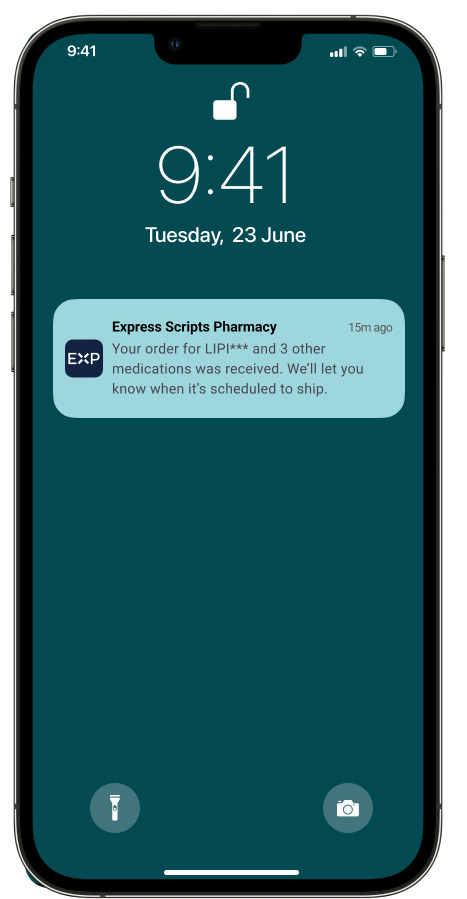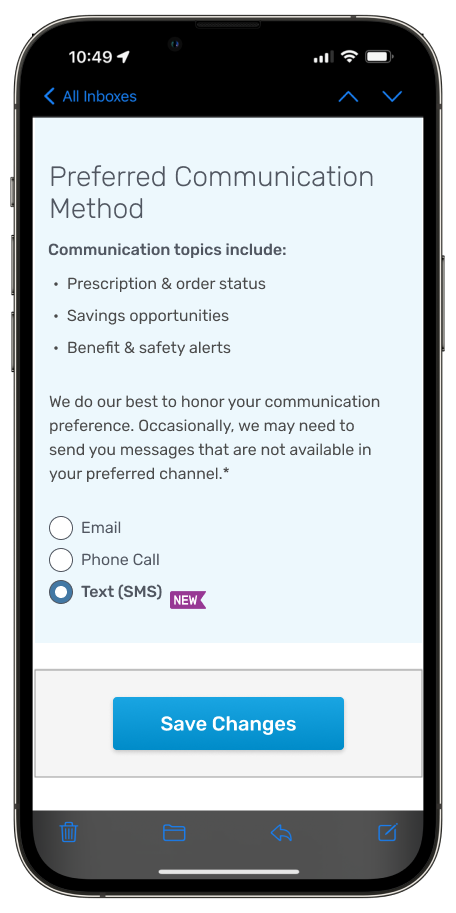New vaccines bring hope for this year’s RSV season

In May 2023, the U.S. Food & Drug Administration (FDA) approved the first ever vaccines for prevention of respiratory syncytial virus (RSV) in adults age 60 and up. In June 2023, an FDA panel approved the first ever extended, half-life monoclonal antibody shot to prevent RSV in newborns and children during their first RSV season. And in August, the FDA approved the first ever maternal RSV vaccine.
The Centers for Disease Control and Prevention (CDC) estimates that as many as 80,000 children under the age of 5 and 160,000 adults over age 65 are hospitalized with RSV each year.1 RSV vaccines could be a potential game-changer for vulnerable populations during this upcoming RSV season.
We sat down with Emily McDonald, a registered pharmacist with Express Scripts® Pharmacy, to find out more about what RSV is, how to care for someone with RSV, when to get help from a healthcare professional, and what you can do to protect yourself and your loved ones.
What is RSV?
RSV is a respiratory virus that generally causes mild, cold-like symptoms. RSV season typically starts in the fall around October, peaks in the winter, and ends around April. However, the timing and severity of the season in a given community can vary from year to year. Symptoms of RSV typically include:
- Runny nose
- Decreased appetite
- Coughing
- Sneezing
- Fever
- Irritability
- Fatigue
- Wheezing
RSV usually runs its course and goes away on its own within 1-2 weeks. However, it can be dangerous for infants less than 6 months of age and older adults with a compromised or weakened immune system.
Symptoms of RSV can overlap with other viral respiratory infections like the flu and COVID-19, as well as some bacterial infections. Doctors will sometimes order a lab test to confirm an RSV infection.
How do you care for someone with RSV?
Because this is a virus, there is no specific treatment for the infection. It’s important to make sure people with RSV drink enough fluids to prevent dehydration. Most people can manage fever and pain with over-the-counter fever reducers and pain relievers such as acetaminophen or ibuprofen, but you’ll want to make sure they’re safe to take with any other medications being taken.
You should avoid giving ibuprofen to babies younger than 6 months of age. Always talk with a healthcare provider before giving your child any medications.
When should I seek medical attention for RSV?
Healthy adults and children who are infected with RSV may not have to be hospitalized, but in some situations, RSV can lead to very serious health complications. Younger infants and older adults can experience bronchitis (inflammation of small airways in the lung) and pneumonia (an infection in the lung), which can lead to hospitalization and potentially the need for more aggressive treatments.
RSV can also make other conditions, such as asthma, chronic obstructive pulmonary disease (COPD), and congestive heart failure, worse.
Seek medical care right away if you or a loved one is having a hard time breathing, not drinking enough fluids, or experiencing worsening symptoms. Infants with severe RSV will experience short, shallow, rapid breathing where it looks as if their sides are caving in and their chest wall is retracting. Other signs of distress may include nasal flaring and intense, labored breathing.
How can I protect myself and my loved ones from RSV?
There are several things you can do to help stop the spread of RSV:
- Wash your hands with soap and water for at least 20 seconds.
- Avoid close contact with sick people.
- Cover your coughs and sneezes.
- Avoid kissing small children, shaking hands, and sharing cups and/or eating utensils.
- Clean frequently touched surfaces, such as your phone and doors.
In addition to these safety measures, infants and children who are less than 24 months old and at high risk for severe RSV illness, such as infants born prematurely or those with congenital heart disease or chronic lung disease, can receive an intramuscular medication called Synagis® (palivizumab). This can help reduce the risk of RSV from occurring, but it can’t cure or treat those already suffering from serious RSV or prevent an infection with RSV.
What can you tell us about the new FDA-approved RSV vaccines?
The FDA approved two vaccines for the prevention of RSV.
- The first is Arexvy, which is approved for adults age 60 and up.
- The second vaccine is AbrysvoTM, which is approved for adults 60 and older. It’s also approved for pregnant women who are between weeks 32 and 36 of their pregnancy. The vaccine produces antibodies in the pregnant woman, who then passes them via the placenta to the fetus. This can help protect infants from severe RSV disease during their first six months of life.
In July, the FDA approved BeyfortusTM (nirsevimab-alip), a monoclonal antibody injection to help prevent RSV in infants born during or entering their first RSV season, and in vulnerable children up to 2 years old. It’s not a vaccine, but rather an injection of prefabricated RSV antibodies that can help provide protection for about five months.
“As a healthcare professional and mother who had to experience a five-day hospitalization due to RSV with my 6-month-old, I am hopeful for the future of these vaccines,” said McDonald.
To get the latest information on available RSV vaccines and treatments, visit the CDC’s website.
1 Centers for Disease Control and Prevention: RSV Surveillance and Research (accessed September 8, 2023): cdc.gov/rsv/research/index.html.
Posted date: November 03, 2023


